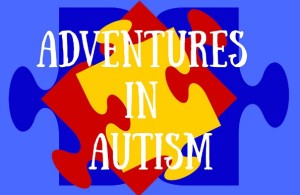Telling your child that they have high-functioning autism (Asperger’s) requires some preparation and a specific frame of mind — and because telling your friends and family is also a challenge, I will address that in this article too. But before I say anything else, I must emphasize AUTISM IS A DIFFERENCE, NOT A DISABILITY. The only disability comes when we don’t provide help and a chance to overcome struggles. I know a lot of people with Asperger’s who are married professionals who live independent lives. And your child will too! As you tell them their diagnosis, it’s imperative you focus on the positive.
When Should I Tell My Family?
 My family has a lot of people with autism in it. My uncle, brother, sister, and nephew all have high-functioning autism, so my mom was actually the first one to be brave enough to tell me she felt my son should be checked for autism. Because our relationship was so open about the subject, I told my mom about my son’s diagnosis the day we got it. But everyone else waited till I was ready to tell the world.
My family has a lot of people with autism in it. My uncle, brother, sister, and nephew all have high-functioning autism, so my mom was actually the first one to be brave enough to tell me she felt my son should be checked for autism. Because our relationship was so open about the subject, I told my mom about my son’s diagnosis the day we got it. But everyone else waited till I was ready to tell the world.
So, when we felt ready (several weeks after the diagnosis), we started by telling our families. My family was already familiar with autism, and some of them even nodded knowingly when we told them. They knew my son and had seen the writing on the wall for years. One of the telltale signs for him was his early obsession with smoke detectors — when he was four, he started collecting them. He was ready to be a professional smoke detector salesman at that early age.
Hubby’s Family
My husband’s family wasn’t familiar with the signs of autism. At first they acted like my son was a different kid than he had been, like he had caught some illness. They tiptoed around and seemed confused about how to act. After a while they got over that, but still didn’t really grasp what autism is. Then they witnessed a major meltdown. It was a little shocking for them, but they really seemed to step up and started to learn about my son and his needs at that point.
Not all families are like that. I know many friends whose families seem determined to tease the autism out of their child. Sometimes they even think autism is a discipline problem or something that the kid needs to “get over.” I am here to tell you that it’s not. Autism is a whole different way of thinking. There are simple things we can all do to be better friends and a stronger family.
 Long story short, share with your family when you are ready — and be prepared for them to need their own acceptance journey. Your child deserves a family who supports them, so your family needs to know. I’ve had friends who have had to fight their families to get them to treat their child appropriately. I pray you won’t have to. But the fight is worth it because your child deserves that safe space.
Long story short, share with your family when you are ready — and be prepared for them to need their own acceptance journey. Your child deserves a family who supports them, so your family needs to know. I’ve had friends who have had to fight their families to get them to treat their child appropriately. I pray you won’t have to. But the fight is worth it because your child deserves that safe space.
How Do I Tell My Child?
Your child’s age when they are diagnosed will affect when you tell them about it. My son was six when he was diagnosed, so we told him fairly early on. I have a friend whose son was diagnosed at age three, so they waited several years because he was just too young to understand.
When we told my son his diagnosis, there were a few key things that made the experience a positive one.
#1: Get some guidance.
I asked our ABA therapist to help us out. She was amazing! She focused on talking with my son about his strengths and was the first one who taught me that autism brings you super powers. We called my son’s strengths his “super powers,” and then we talked about how everyone is different and everyone has different strengths.
#2: Explain Things on Their Level
 When we talked to my son, we explained how people think differently. I compared the Xbox 360 to the Xbox One. We talked about how video games are programmed differently to “talk” to different machines.
When we talked to my son, we explained how people think differently. I compared the Xbox 360 to the Xbox One. We talked about how video games are programmed differently to “talk” to different machines.
We made sure he understood just how amazing his mind was because he could convert the code of life to communicate with everyone, and that isn’t an easy thing to do. Since he loves gaming, it was an easy thing for him to understand. Ultimately, since every kid is different, you will need to find an example that speaks to your loved one.
#3: Get Some Props
I love props, so I made sure I had props during this conversation. I got the BEST book from Amazon, called “Dude, I’m an Aspie”. I read several books before finding this one. My local library was so helpful. I’m a book snob, and I find so many children’s books about autism to be lacking. But this one was so well done! They have a kids version and an adult version. I suggest it for all my friends when they are trying to help their family or friends understand autism.
We bought a copy, and my sweet boy read that book so many times. He loved how he related to all the things Matt Friedman said about Asperger’s. For that reason, I have to caution you which book you choose. I read several that really didn’t fit my son. Since everyone is different, you will need to personally read any book you are considering. Make sure that they treat autism with the accepting and kind tone you want in your child’s self-talk. This is a time when your child will be making connections with the world as he is learning about himself — and we want him to accept and love this aspect of his life.
#4: Don’t Be Afraid
 Coming from a family with many members with autism, I can tell you that it’s important for you to tell your child they have autism. It’s also important they don’t think autism is a condition that you get treatment for and then you are cured. It’s a permanent difference in how your brain works. It’s nothing to be ashamed of. Any misunderstanding in this area can cause serious problems.
Coming from a family with many members with autism, I can tell you that it’s important for you to tell your child they have autism. It’s also important they don’t think autism is a condition that you get treatment for and then you are cured. It’s a permanent difference in how your brain works. It’s nothing to be ashamed of. Any misunderstanding in this area can cause serious problems.
For my son, he loved learning about how he was different. He loved being able to celebrate what made him great. I hadn’t even known he was old enough to feel different from others, but he was feeling those differences. He is a smart cookie. In telling him, we gave him a gift.
The Tragedy of Never Knowing
My little brother married a woman who didn’t understand the scope of the challenges and support he would need to cope with those challenges. They struggled for many years before their marriage finally fell apart. But if she had a proper understanding of his needs, and she had reasonable expectations, they would have had a better foundation. Their marriage might have fallen apart anyway, but that single difference was important. Fortunately he is now married to a wonderful woman who understands him, and they make a great team.
I have a friend who has spent years feeling like an oddball. But between you and me, nobody has ever told her she has autism. I have tried. But autism is a spectrum, and everyone is a little different. If I hadn’t had so much experience with it, I would not have noticed the subtle differences. Unfortunately, many people don’t understand that autism in women is different than in men. It manifests differently. Her social skills are light years ahead of my brother simply because of her gender. But because she won’t listen, she is continuing to live her life feeling like an oddball. It breaks my heart. I never wanted that for her or for anyone else. That’s why it’s important to tell your child, even if you are nervous.
Should I Tell My Friends?
As a woman, my friends are often my lifeline. But I learned that sometimes friends aren’t able to be the support you are hoping they would be. Honestly, I lost some friends in this process. I learned that they weren’t the kind of supportive women I needed in my life… And after the initial sting, I got over it, filling my life with truly supportive people.
As I told friends about my son’s diagnosis and what was going on in my life, I found some amazing women in similar situations. And honestly, when you are a special needs mom, finding another special needs mom is like Christmas! They are an instant friend. They are a great resource when you need ideas. Having someone who just “gets it” can be like breathing again after holding your breath for too long.
When my son was first diagnosed, I didn’t have many mom friends who were also special needs moms. But as I have been sharing my experiences, I am finding them everywhere! Many of my friends turned out to be special needs aunts, grandmas, or moms themselves. I can’t say it’s always easy to talk about. There are a lot of people who really misunderstand autism and because of that, there are stigmas around it. But I love being able to help people move beyond their misconceptions.
I’m grateful to all the good people I have met on this journey. Autism is not scary to me anymore. In fact, I see it as the next step in human evolution. After all, half the drama and stress in my life comes from worrying about what people think of me or my family — but many people on the autism spectrum don’t even care what others think. That is so freeing! May you be blessed in your journey. This is a new phase, but an autism diagnosis is really just the first step in the adventure.
This article was previously posted in Abby’s blog at Patheos.com
Abby is capable and caring. She is learning more about Autism and parenthood every day. Having completed training to be an RBT (Registered Behavior Technician) for ABA therapy she is beginning to understand her son. And even though she is the first to admit she makes a lot of mistakes, she is so grateful to be on this journey. She comes from a family with many autistic members. She invites us to join her, as she shares her adventures. She wishes to emphasize that Autism is a difference not a defect. If you or a family member have autism, Abby wants you to know that the challenges can be overcome, and there are blessings in autism. You or your loved one are not sick or broken. Together we will teach the world this new language.







